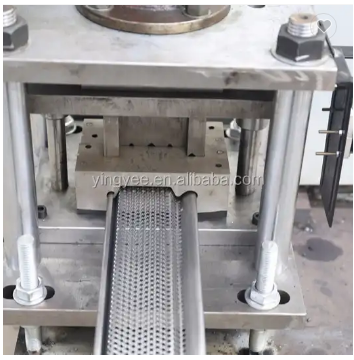
Sheet metal forming is a vital process in various manufacturing industries, enabling the creation of intricate and precise components used in everything from automotive parts to aerospace structures. Sheet metal forming machines play a crucial role in this process, offering manufacturers the ability to transform flat sheets of metal into desired shapes and configurations.
At the heart of sheet metal forming technology are several key machines, including punch presses, hydraulic presses, and CNC (Computer Numerical Control) machines. Each type of machine serves a specific purpose and is equipped with various tools that help shape metal sheets efficiently. For instance, a punch press utilizes a die to cut or stamp shapes into the metal, while hydraulic presses can apply substantial force to bend or form materials.
One of the primary advantages of sheet metal forming machines is their efficiency. With advanced controls and automation capabilities, these machines can produce high volumes of components with remarkable accuracy. This efficiency reduces labor costs and minimizes waste, as manufacturers can optimize material usage and production times. Moreover, the precision offered by these machines ensures that components meet stringent industry standards, enhancing overall product quality.

Additionally, advancements in technology have led to the development of more sophisticated sheet metal forming machines. Features such as programmable controls, real-time monitoring, and integration with industrial IoT systems enable manufacturers to enhance productivity and maintain consistent quality. With smart manufacturing practices on the rise, these machines can communicate with other equipment and supply chains, facilitating a more streamlined operation.
The versatility of sheet metal forming machines also deserves mention. They can handle a wide variety of materials, including aluminum, stainless steel, and copper, making them suitable for diverse applications. Whether it’s creating complex enclosures for electronics or structural components for vehicles, these machines can adapt to various thicknesses and types of metals.
In conclusion, sheet metal forming machines are indispensable in modern manufacturing. Their ability to produce high-quality, precise components quickly and efficiently is crucial in meeting the demands of various industries. As technology continues to evolve, we can expect even more innovations in sheet metal forming, further enhancing the capabilities and applications of these essential machines. This evolution will not only increase efficiency but also open up new possibilities for design and manufacturing, thereby shaping the future of the industry.